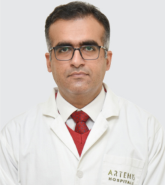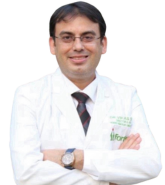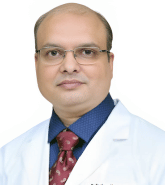We have been witnessing incredible advancements in oncology but few have captivated the medical community and, more importantly, offered such profound hope to patients as CAR T-cell therapy. Just a decade ago, the idea of engineering a patient’s own immune cells to become cancer-fighting superheroes seemed like science fiction. Today, it’s a vibrant reality, a cornerstone of modern cancer treatment that is truly lighting the way to a future where more people can live beyond a cancer diagnosis.
Imagine a personalized “living drug,” tailor-made to hunt down and destroy cancer cells with remarkable precision. That’s the essence of CAR T-cell therapy. It’s a revolutionary form of immunotherapy that doesn’t just treat cancer; it unleashes the body’s own defense system to do the heavy lifting.
The Genesis of a Revolution: CAR T-Cell Therapy Development
The journey of CAR T-cell therapy development is a testament to unwavering scientific curiosity and dedication. It began with a fundamental understanding of how our immune system, specifically T cells, identifies and eliminates threats. Researchers realized that if these T cells could be reprogrammed to specifically recognize cancer, they could become powerful therapeutic agents.
CAR T-cell therapy is an advanced immunotherapy that uses modified immune cells to target cancer. The process involves the following steps:
- Collection: It starts with a simple blood draw from the patient. From this blood, their T cells – the body’s natural “killer cells” – are isolated.
- Engineering: These T cells are then sent to a specialized lab, where they undergo a genetic makeover. Scientists introduce a new gene that enables the T cells to produce special proteins on their surface called Chimeric Antigen Receptors (CARs).
- Targeting: These CARs are designed to act like a highly specific homing beacon, allowing the T cells to “see” and latch onto particular proteins (antigens) found on the surface of cancer cells. Think of it like giving your T cells a custom-made key to unlock and destroy cancer’s defenses.
- Expansion: Once engineered, these “super-T cells” are multiplied in the lab until there are hundreds of millions of them.
- Infusion: Finally, this army of personalized CAR T-cells is infused back into the patient, ready to seek and destroy cancer cells.
Once infused, these CAR T-cells don’t just disappear; they continue to multiply within the patient’s body, acting as a persistent surveillance system, diligently eliminating any remaining cancer cells that express the target antigen. This innovative approach has earned CAR T-cells the name of a “living drug.”
5 easy Steps to Get Treated Abroad

Share Case Details

Get Expert Opinion and Hospital Quotes

Get Visa Invitation & Hotel Recommendations

Get Received At Airport and Start Your Treatment

Travel Back and Get Followups Through Us
The entire CAR T-cell therapy process, from initial patient evaluation and T-cell collection to manufacturing, conditioning chemotherapy, infusion, and post-infusion recovery, generally extends across several weeks to a few months.

India stands out in the research and development of advanced cancer treatments. The success rate of CAR T-cell therapy has been nothing short of transformative for specific blood cancers. The initial breakthrough came in 2017 with the FDA approval of the first CAR T-cell therapy for children with acute lymphoblastic leukemia (ALL). For many years, children whose ALL returned after chemotherapy or a stem cell transplant had limited options. CAR T-cell therapy offered a lifeline, eliminating leukemia in most of these children, often for long periods, with many appearing to be cured. Also, another major achievement is NexCAR19, first CAR T-Cell therapy designed and approved in India, currently for the treatment of B-cell cancers such as such as relapsed or refractory B-cell lymphomas and B-cell Acute Lymphoblastic Leukemia (B-ALL).
What Cancers Can Be Treated with CAR T-Cell Therapy?
The following cancers can be treated with the Car T-cell therapy:
- Acute Lymphoblastic Leukemia (ALL): Especially in pediatric and young adult patients whose cancer has relapsed or is refractory to other treatments.
- Non-Hodgkin Lymphoma (NHL): Including diffuse large B-cell lymphoma (DLBCL), follicular lymphoma, and mantle cell lymphoma, particularly for advanced cases unresponsive to standard therapies.
- Multiple Myeloma: Offering a new lease on life for adults with relapsed/refractory multiple myeloma.
Examples of CAR T-cell therapies currently approved include:
- Tisagenlecleucel, also known as tisa-cel (Kymriah)
- Axicabtagene ciloleucel, also known as axi-cel (Yescarta)
- Brexucabtagene autoleucel, also known as brexu-cel (Tecartus)
- Lisocabtagene maraleucel, also known as liso-cel (Breyanzi)
- Idecabtagene vicleucel, also known as ide-cel (Abecma)
- Ciltacabtagene autoleucel, also known as cilta-cel (Carvykti)
- Obecabtagene autoleucel, also known as obe-cel (Aucatzyl)
In these advanced blood cancers, where conventional treatments often fall short, CAR T-cell therapy has achieved remarkable results, including complete eradication of disease in some individuals, transforming previously untreatable situations into opportunities for long-term remission and even apparent cures.
Navigating the Landscape: Side Effects of CAR T-Cell Therapy
While incredibly powerful, it’s important to understand the side effects of CAR T-cell therapy. Like any potent cancer treatment, it can come with significant challenges, which is why it’s administered and monitored in specialized centers. The most commonly discussed side effects include:
- Cytokine Release Syndrome (CRS): This is essentially an intense immune response where the activated T cells release a flood of inflammatory molecules called cytokines. Symptoms can range from fever and chills to more severe issues like dangerously low blood pressure and difficulty breathing. Fortunately, treatments like tocilizumab, which blocks a key cytokine, have dramatically improved the management of CRS.
- Immune Effector Cell–Associated Neurotoxicity Syndrome (ICANS): This can be seen as neurological problems, including confusion, excessive sleepiness, difficulty speaking, or even seizures. ICANS is also carefully managed, often with steroids.
- B-cell Aplasia: Because CAR T-cells often target antigens found on both cancerous and healthy B-cells, normal B-cells can be inadvertently destroyed, leading to a temporary (or sometimes long-lasting) deficiency in antibody production. This can increase the risk of infection, often managed with immunoglobulin replacement.
The diligent management of these side effects by expert medical teams is crucial for patient safety and successful outcomes.
What Happens if CAR T-Cell Therapy Fails?
It’s a valid concern. While the CAR T-cell therapy success rate is high for approved indications, it doesn’t work for everyone, and relapses can occur. If the car t-cell therapy fails, a medical team will re-assess the situation as per the standard treatment protocol. This might involve:
- Further CAR T-cell therapy: Sometimes, a different CAR T-cell product targeting another antigen might be considered, or another dose if appropriate.
- Other immunotherapies: Exploring different forms of immunotherapy.
- Conventional treatments: Reverting to or trying new chemotherapy regimens, radiation, or stem cell transplants if feasible.
- Clinical trials: Participating in a clinical trial for next-generation CAR T-cell therapies or other experimental treatments.
Future Scope:
The field is constantly evolving. Researchers are relentlessly pursuing ways to:
- Improve efficacy in solid tumors: This has been a major challenge due to factors like the immunosuppressive tumor microenvironment and the difficulty in finding unique target antigens. However, promising early results are emerging in cancers like glioblastoma and neuroblastoma.
- Enhance CAR T-cell persistence: Making the engineered cells last longer in the body to prevent relapse.
- Reduce side effects: Developing “smarter” CAR T-cells or better management strategies.
- Create “off-the-shelf” CAR T-cells: Using T cells from healthy donors that can be manufactured in advance, making the treatment more accessible and faster to administer, rather than being custom-made for each patient.
- Targeting multiple antigens: To combat tumor heterogeneity and prevent cancer from escaping by losing a single target antigen.
How to Connect with the leading CAR T-Cell Experts?
Accessing advanced CAR T-cell therapy requires highly specialized oncologists and dedicated medical teams. To connect with leading experts and suitable treatment centers, individuals can submit their medical reports and diagnosis details at Cancer Rounds website. A dedicated case manager then provides personalized information and support, tailoring details to specific treatment needs. This service includes arranging priority appointments with top oncologists who possess extensive experience in CAR T-cell therapy, within leading hospitals equipped for this specialized treatment. Cancer Rounds has a wide network, spanning both national and international locations, to ensure broad access to expert options. This streamlined approach aims to alleviate the challenges and stress associated with securing timely appointments with leading car t-cell therapy specialists, facilitating a smoother treatment experience and focusing on patient recovery.
The cost of CAR T-cell therapy is estimated to be around Rs. 40 lakhs, although the price varies due to various factors, such as location, hospital, cancer type, stage, patient’s age and
For patients and families, the question, “does insurance cover CAR T-cell therapy?” is critically important. Given its complexity and advanced nature, CAR T-cell therapy is a high-cost treatment. The good news is that for FDA-approved indications, CAR T-cell treatment is typically covered by most major insurance providers. However, coverage can vary depending on your specific plan.
Final Words
CAR-T cancer treatment has already rewritten the narrative for many patients facing dire prognoses. It represents a paradigm shift, moving beyond traditional treatments to harness the body’s own incredible power to heal. While challenges remain, the rapid pace of Car T-cell therapy development and the ongoing innovation in research offer immense hope. We are truly just scratching the surface of what these engineered immune cells can achieve. The path to a future free from the constraints of cancer is being illuminated, one powerful, reprogrammed T cell at a time. This progress inspires confidence that the therapeutic potential of CAR T-cells will continue to expand, offering renewed hope for cancer patients worldwide.
 Chat on WhatsApp
Chat on WhatsApp

















